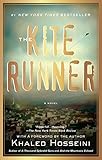Among the recommended reading list for young adults, The Kite Runner stands out in the category of its in depth exploration of betrayal, redemption and self-identity. The novel is written by Khaled Hosseini, an Afghan-American writer. It tells a story of Amir who suffers from childhood trauma, and finds his identity in the world eventually. The story can be divided into three sections: Amir’s childhood in Afghanistan, Amir and his father’s life in the U.S., and Amir’s return to Afghanistan. In his childhood, Amir lived with his father in a privileged family in Kabul, while Ali and his son Hassan stayed as servants. The two boys become best friends. Hassan is always ready to help and protect Amir. However, their friendship is destroyed and ends in an unexpected way. Amir was eager to prove his skills and bravery to satisfy his father, so he longed to win the kite running tournament which is a big event. Hassan successfully took back Amir’s kite and helped him win the event, but Amir did not stand out to protect Hassan from being abused and humiliated. Out of guilt, Amir framed Hassan up and drove Hassan and his father away from his home. Later when the political and military conflicts became fierce, Amir moved to California, U.S. with his father and started a new life from scratch. Years later when his father died and Amir finally settled down with his wife, he received a phone call from an old friend of his father who told him “There is a way to be good again.” That is when and why Amir returned to Kabul and found out that Hassan’s son Sohrab is in danger. Amir conquered his inner struggles with the facts that how Hassan and his family sacrificed for Amir’s family, that Hassan is indeed his half-brother, that Sohrab becomes an orphan and lives in a life risking situation, etc. Amir decided to mend his long-lasting guilt toward Hassan, face his cowardice, and seek redemption by rescuing Sohrab. This time, Amir did it and he took Sohrab back to the U.S. and taught the boy to fly the kite. Looking at the flying kite, Amir heard Hassan telling him “For you, a thousand times over.” from which he finally finds inner peace with himself and finds his identity to be “be good again.” The ending is very promising and powerful as Charlie B. remarked that “The message behind the very ending could be interpreted differently by different readers, but personally I feel that it offers a small sense of hope for both the future of its characters, and perhaps for war-torn Afghanistan as well.” Charlie B, https://www.theguardian.com/childrens-books-site/2014/jul/30/review-khaled-hosseini-the-kite-runner I would highly recommend this book to readers from young adults and above. As remarked in dogobooks, this novel is “A powerful story of friendship, it is also about the power of reading, the price of betrayal, and the possibility of redemption; and an exploration of the power of fathers over sons—their love, their sacrifices, their lies.”

The Kite Runner
By Khaled Hosseini
| Interest Level | Reading Level | Reading A-Z | ATOS | Word Count |
|---|---|---|---|---|
| Grades 9 - 12 | Grade 6 | n/a | 5.2 | 107052 |
The #1 New York Times bestselling debut novel that introduced Khaled Hosseini to millions of readers the world over.
The unforgettable, heartbreaking story of the unlikely friendship between a wealthy boy and the son of his father’s servant, caught in the tragic sweep of history, The Kite Runner transports readers to Afghanistan at a tense and crucial moment of change and destruction. A powerful story of friendship, it is also about the power of reading, the price of betrayal, and the possibility of redemption; and an exploration of the power of fathers over sons—their love, their sacrifices, their lies.
Since its publication in 2003 Kite Runner has become a beloved, one-of-a-kind classic of contemporary literature, touching millions of readers, and launching the career of one of America's most treasured writers.
The unforgettable, heartbreaking story of the unlikely friendship between a wealthy boy and the son of his father’s servant, caught in the tragic sweep of history, The Kite Runner transports readers to Afghanistan at a tense and crucial moment of change and destruction. A powerful story of friendship, it is also about the power of reading, the price of betrayal, and the possibility of redemption; and an exploration of the power of fathers over sons—their love, their sacrifices, their lies.
Since its publication in 2003 Kite Runner has become a beloved, one-of-a-kind classic of contemporary literature, touching millions of readers, and launching the career of one of America's most treasured writers.
Publisher: Riverhead Books
ISBN-13: 9781594631931
ISBN-10: 159463193X
Published on 9/26/2013
Binding: Paperback
Number of pages: 400